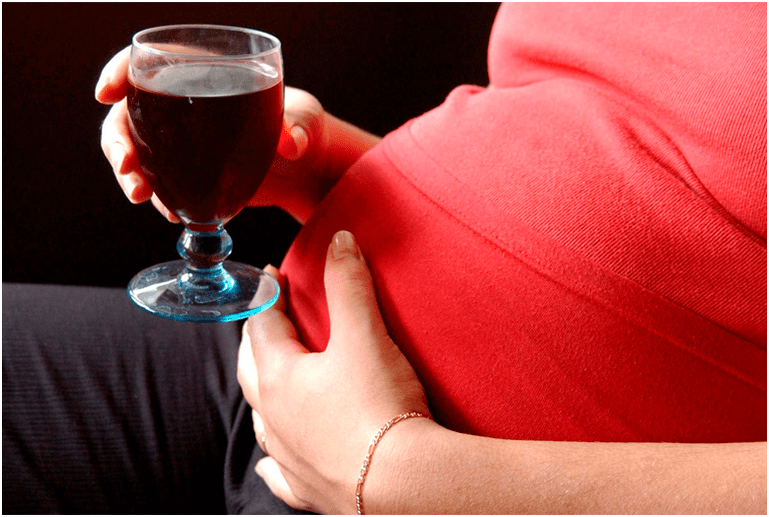Notorious British psychotherapist David Nutt, who is famous not only for his scientific achievements but also for his habit of expressing his thoughts and beliefs directly and without unnecessary implications. , argued that there is no substance more dangerous to a person than alcohol. In terms of harmful effects, ethyl alcohol surpasses many poisons and addictions, but for some reason the habit of drinking at night is considered normal by most people.
Of course, when alcoholism crosses social boundaries, and a person slips into the abyss and begins to live a marginalized lifestyle, this is considered a slow suicide, but isn't it for most people? criticize the so-called drunkenness in the family? A glass or two of wine at dinner, a bottle of beer at a football game or 100 grams of wine when meeting friends is considered as appropriate as a cup of tea, but such a habit ends up causing a lot of negative effects. harmful. worse than chronic drinking. Is alcohol very dangerous, or is it just a stereotype? Let's turn to the opinions of scientists.
The harmful effects of alcohol on the human body: a brief overview of the main
So what is the main danger of alcohol? In its deceptive harmlessness! California scientists declare that ethyl alcohol in small amounts is absolutely safe. It is true that they cleverly keep quiet about where the "small amount" ends and where the "drunk" begins. It is also not possible to find information on who funded these studies, as they are not published in any reputable scientific journal, which requires all experimental protocols and data on the studies. Donors. Is it led by a representative of the wine industry? It's still just a guess.
At the same time, there is no such thing as spontaneous dependence - often alcoholism develops precisely from the habit of drinking a bottle at special times of joy and sadness, among friends and relatives. And we're not talking about notorious alcoholics who can't live without a bottle of cheap wine for a day - those who ruin their health on a daily basis are enough in the smart world.
It's hard to find a more insidious liquid than alcohol. It acts on the brain like serotonin (the natural hormone of joy), causing feelings of happiness and high spirits. It is this effect that is responsible for the emergence of a habit - instead of learning how to enjoy life to the fullest, it is easier to obscure the mind with a substitute for pleasure.

However, this effect is quickly replaced by a much less pleasant effect - a complete reduction in the ability to control one's emotions and actions causes a drunk to "appear in all its glory". its". Some show aggression, others start crying for no reason, others behave too lovingly. . . The number of drunken expressions is numerous, but none of them look attractive from the outside.
Furthermore, inappropriate behavior is not the worst companion of a hangover. Statistics show that more than half of all road traffic accidents and one-third of suicides occur while intoxicated. With each drunken glass, the number of cells in the cerebral cortex gradually decreases, but the irreversible effect is not immediately noticeable. Look into the eyes of a person who has been drinking for a long time and often - healthy thoughts, social norms and human perception there are gradually replaced by mediocre animal instincts and cravings. a bottle of wine. Moreover, the process is irreversible - if the damaged liver can still be treated a little, the cortex will not be restored. Australian scientists have proven that even people who drink alcohol moderately 2-3 times a week, the size of the brain gradually decreases and its function also decreases due to shrinkage. On average 200 ml of 40 degree strong water kills 1000-2000 cells. Keep this in mind when pouring another glass!
Effects of alcohol on men

Like any addictive substance, ethyl alcohol acts slyly - at first you won't notice any changes and unpleasant health consequences, but over time, when it's impossible to quitWhen you say no to a glass of booze, you'll see for yourself how the first impression is deceiving, and even some drinkers' belief that a bottle helps them relax and relieve stress is nothing more than self-deception. Such sensations paralyze the centers of attention and self-control - ethanol, penetrating the bloodstream, affects the brain centers and simulates feelings of euphoria, overshadowing all other sensations, overshadowing perceptionrealistically reasonable. The same goes for marijuana or marijuana. Why is the harm of drugs known even to a child and alcohol considered indulgent? No answer…
Furthermore, media and advertising-imposed stereotypes about male brutality and masculinity are directly related to alcohol use. A glass of beer, a glass of whiskey or rum is considered a noble pastime of true gentlemen, but it is not at all. Yes, the glass will be invisible at first, but with each new sip, the vessels and capillaries will become more vulnerable and less elastic, and the heart will work at half its strength. This means that after a few years of regular "drinking a glass", blood circulation will inevitably be disturbed, and as a result impotence will appear, which cannot be eliminated even with help. of modern potency modifiers - any of these drugs have a strict restriction on alcohol. So, dear men, remember: by toasting glass after glass, you are depriving yourself of an important aspect of a fulfilling life.
Effects of alcohol on the female body
Women's alcoholism is much worse than men's. Although ethanol has an equally destructive effect on organisms of both sexes, female physiology is much more bizarre: female vulnerability, emotionality, and psychological sensitivity are a characteristic. Physiologically rational, which means that they develop a strong dependence on the illusion of happiness and calm. faster. Trying to avoid problems in alcohol forgetfulness, women get drunk much faster, because the body cannot resist this attachment, and the peculiarities of the psyche hinder the mind's attempt to overcomecraving a drink.
In addition, women's livers filter ethyl alcohol less efficiently, which means it breaks down faster under its influence. According to statistics, the first signs of cirrhosis appear in women on average after 5 years of alcoholism and in men - after 7. And although the difference is small, it proves clear. It is clear that women's bodies are more sensitive than men's. to wine.

What are the dangers of alcohol during pregnancy?
A pregnant woman is a sacred vessel in which the life of an unborn child is hidden. Unfortunately, not every woman perceives pregnancy this way. Modern trends prescribe new rules: today, ladies "in a position" do not refuse anything, not even a glass of red wine, which gynecologists are said to recommend for pregnancy. relieve stress and relax the body in general. Who awarded these medical education diplomas? What guidelines do gynecologists recommend when recommending this to pregnant women? There are proven and safe ways to reduce stress, such as breathing fresh air, meditating, simple yoga poses or going for a walk in nature. What's with the alcohol?
Studies by the American Association have shown that the infant mortality rate in alcoholic mothers is five times higher than in non-drinkers. And this isn't about alcoholism, it's about the infamous "drinking culture, " known as everyday binge drinking. Ethanol affects the fetus right from the womb, causing underdevelopment, mental retardation and other pathologies that will accompany the child for life! Is his suffering worth the imaginary joy of a mother who cannot refuse a glass of wine?
An interesting experiment on the effects of alcohol vapor on embryos was carried out at the Federal Center for Health and Biological Sciences. 160 eggs were placed in the incubator, and an ethanol steam generator was installed in the room. As a result, half of the embryos simply did not form, and of the remaining 80, 40 died within the first days after birth and another 25 had severe defects - such as absence of beak, one wing or with incorrect wings. legs formed. Worth considering!
Effects of alcohol on a teenager's body
There is not and cannot be an innate need to drink - children learn this by observing their family and loved ones. If the advertising, sale and consumption of alcohol were banned on the same day, no child would feel deprived, inferior and even less want to try alcoholic products. In adolescence, however, the statistics change dramatically: more than 60% of modern teenagers try alcohol by the age of 15, and by adulthood their percentage reaches 90.
Research by our scientists B. S. Bratusya and P. I. Sidorova has shown that even at preschool age children easily reproduce the process of drinking and intoxication. If you ask the kids to play a wedding, birthday or party trip, they will accidentally clink glasses, pour drinks over them, and say congratulations. Thus, a stereotype is formed that alcohol is a companion of celebration and joy, a symbol of a carefree and happy adult life. This is where teenage alcoholism begins.

What harm does alcohol do to today's teenagers?
Teens today see alcohol as a small and idle pastime that allows you to get over your first disappointment, deal with embarrassment on a first date, or just have fun with friends. However, even a glass of low-alcohol beverage such as beer or homemade wine is enough to make a fragile body drunk and out of control.
Drinking for teenagers is a false opportunity to assert themselves, to feel more mature, more comfortable and braver. Describing yourself as a "bad guy" or "fat girl" using alcohol for this purpose is as easy as peeling a pear, but is everything as harmless as it seems? Destructive behavior, trying to appear more mature, swagger, and hysteria aren't the worst companions of teenage drinking. Most young people after drinking a glass lose their sense of balance, gradually falling into a feeling of euphoria instead. This is how attachment arises, and taking into account the fact that in adolescence, the body in general and the soul in particular are not fully formed, it is much more difficult to overcome the addiction that has arisen. compared with adults.
Harm of alcohol on the human body: results
Data from the World Health Organization leaves no doubt: every three premature deaths are linked to drinking. Some drink to the point of complete destruction of the body, others have accidents due to the effects of ethanol, others lose control and harm themselves. Today, however, a conscious choice to advocate for a sober lifestyle is not so simple: successful men and women with a glass of wine watch us from TV screens, billboards and phones. their own smartphones, and just below in a small and almost unrecognizable corner of the font is the caption: "Too much alcohol is bad for our health" to comply with the law.
Such mass advertising has a simple explanation: the profits of the alcohol industry are estimated in the billions of dollars, where each potential consumer has another chance to fill his or her pocket. To combat this propaganda, you just need to think with your own head and worry about your own health. The atomic explosion in Hiroshima claimed the lives of two hundred thousand people, and alcohol kills about one and a half million people every year. It's all math. . .
6 reasons to give up alcohol
A glass of wine is often offered as a way to relieve stress and emotional difficulties. At the same time, alcohol can be the source of many problems. We tell you why no alcohol is better.
Alcohol is a depressant
Alcohol is often thought of as an antidepressant, and this is not true. It only helps the body relax for a short time and improves mood by increasing dopamine, the hormone of pleasure. But then the body adapts to the hormone production and needs more and more to be effective. In addition, tetrahydroisoquinoline is formed, a substance that blocks the production of dopamine and serotonin. A person who stops enjoying life without stimulation falls into a depressed mood. Thousands of nerve cells are destroyed, no longer able to recover.
After a brief rise in mood, aggression and apathy increase. Scientists believe that alcohol contributes to insomnia, increased anxiety and, when used systematically, can cause neurological disorders.
The negative effects on mood subside after two weeks of alcohol withdrawal and are almost completely eliminated within a month - a person recovers mental functions, mood normalizes, vitality and motivation increaseup.
Drinking alcohol affects appearance
With the regular use of alcohol, the skin loses its elasticity due to dehydration. This leads to premature aging and cosmetic problems: redness and swelling, gray skin, dark circles under the eyes and wrinkles appear. High cholesterol in the blood leads to red streaks on the whites of the eyes. When a person stops drinking, most of the body's functions are gradually restored, which has a positive effect on appearance. This process will take anywhere from a few weeks to several years, depending on how long the alcohol has been consumed.
Alcohol causes overeating
Ethanol stimulates a special AGRP protein known as the "obesity protein". It significantly increases appetite, causing bulimia, even when a person is full of energy and does not want to eat. The habit of drinking a glass of wine slows down your metabolism, so it's better to replace alcohol with healthy drinks.
Alcohol causes disease
Alcohol is a cause of cirrhosis and hepatitis because liver tissue becomes inflamed and scarred. It actively destroys the pancreas and causes a tendency to diabetes. The intestinal wall is destroyed under the influence of alcohol, the cell structure changes, they can no longer fully absorb useful substances, affecting the immune system and general health. Alcoholic beverages adversely affect almost every organ. In the stomach, the production of mucus is inhibited - a substance that protects the mucous membrane from irritants. Without it, the stomach is prone to gastritis and peptic ulcer.
Intestinal microflora is gradually restored within a week after the body eliminates alcohol. By the way, the withdrawal of alcohol from the female body is 20-25% slower than that of men. If a person is awake for two weeks, he will think clearly, blood pressure normalizes, heart rate stabilizes, shortness of breath and headaches will disappear.
Ongoing financial expenses
One of the obvious but pleasant consequences of giving up alcohol is savings. High taxes are imposed on wine-making ingredients, so ready-to-drink drinks are mainly purchased domestically from abroad. Wine prices are constantly on the rise, and if you drink high quality (and the other isn't worth it), then this takes a toll on your budget. Even with the average cost of about a glass of wine with dinner per month, you'll save quite a bit. Add to that the cost of doctor visits, as well as medications and cosmetics, which you need for much less if you live a healthy lifestyle.
Risk of developing alcoholism
It seems that alcoholism can only develop in people from disadvantaged backgrounds. In fact, this is not always a pronounced disease with external signs. Early-stage alcoholics can continue an active social life, going to work, taking care of loved ones, and hanging out with friends. Alcoholism occurs regardless of standard of living, wealth and education. At the same time, at first glance, malfunctions in the functioning of the body and mind appear. Therefore, it is especially important to control this habit and monitor your health to avoid difficult consequences. Furthermore, the sooner a person stops drinking alcohol, the quicker most problems arising from it are resolved.
What if it was just a little bit?
You can often find the opinion that in small doses alcohol is good for health. Doctors from the American Heart Association argue with this theory. Over the course of six years, they observed about five thousand volunteers, half of whom drank regularly and little by little – just a glass of wine or a pint of beer in the evening. Experts note that these people, according to general health indicators, have an increased risk of disorders of the cardiovascular system, including an increased likelihood of atrial fibrillation.

































